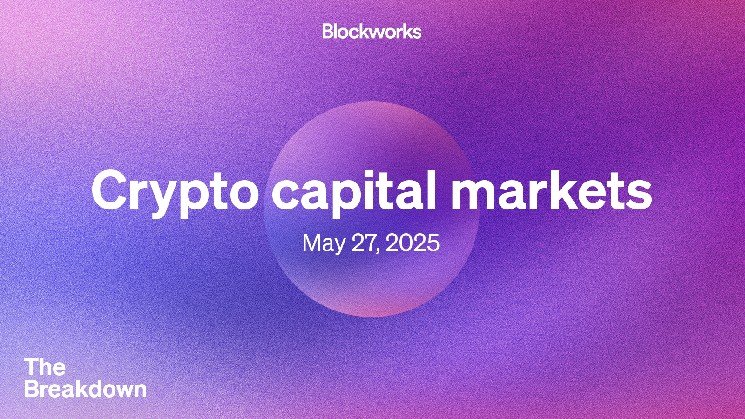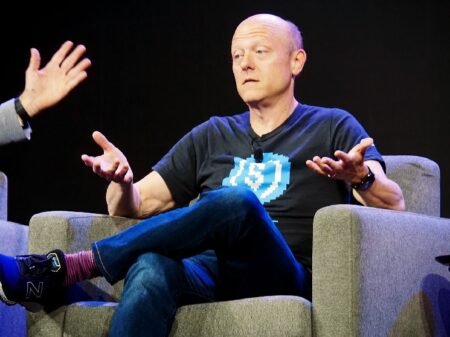“The chief business of the American people is business.”
— Calvin Coolidge
When Ross Perot’s “computer facilities management” startup Electronic Data Systems was listed on the stock exchange in 1968, the shares were offered at 118x earnings.
It was an eye-popping valuation at the time — especially given the risks.
EDS “is in a precarious position,” Fortune noted shortly after its IPO. “It has only a few customers, and three of them accounted for a total of 64% of revenues during fiscal 1968.”
But those were the kinds of risks that investors were keen to take.
“As every ladies’ investing club knows,” Fortune explained, “the public these days is wildly receptive to new stock issues, particularly from companies involved in the computer industry.”
It’s unlikely that many of those ladies had ever even seen a computer, let alone used one.
But they were nonetheless eager to bet on them, however aggressive the valuation.
Ken Langone, the investment banker who promised Perot he’d IPO EDS at “the highest possible price,” acknowledged that the price was indeed high.
At 118x earnings, the stock “would be way overvalued,” Langone later wrote.
“But it would only be overvalued until it grew, and then it wouldn’t be.”
The investment club ladies — intrepid pioneers of growth investing — agreed with him.
EDS closed its first day of trading 40% above the “overvalued” IPO price.
With that, Perot has achieved “perhaps the most spectacular personal coup in the history of American business,” Fortune assessed.
The article dubbed Ross Perot “the fastest richest Texan ever,” which was no small feat in the state renowned for overnight oil fortunes.
Soon, Perot was also historically rich.
With EDS shares soaring into the end of the year, the 39-year-old Perot became history’s first tech billionaire.
It was a uniquely American story.
No other country could have produced an entrepreneur quite like Ross Perot, who spoke in Texas colloquialisms, got his hair cut Marine short every week at the same Dallas barber for 30 years straight, was a devout family man but also ruthlessly hypercompetitive in business — and won 18.9% of the popular vote in the 1992 presidential election.
But what made Perot’s fortune even more uniquely American is that investors in no other country would have enabled it.
EDS was just one of 368 companies to list its shares on American stock exchanges that year in an era when companies in other developed countries got most of their funding from bank loans.
While the US was averaging more than one IPO per calendar day, Germany, for example, averaged fewer than one IPO per year.
After the EDS IPO, Fortune speculated that “probably no other man made so much money so fast.”
But the author also cautioned that “most of Perot’s wealth can be attributed to the enthusiasm of investors.”
That enthusiasm for risk-taking did more than just make founders like Perot wealthy, however — it made America wealthy, too.
The United States “had a public stock market that was willing to absorb risk at much earlier stages than European and Asian markets,” Bhu Srinivasan wrote in his history of American capitalism.
This gave the US “the unique capability to finance ideas at the earliest stages,” — and later “an ecosystem in Silicon Valley that allowed embryonic companies in nascent markets to develop quickly.”
Some of those embryos have developed into giants: The United States is now home to 21 of the 25 largest companies in the world.
Americans don’t always celebrate this incredible success.
Occupy Wall Street types actively bemoan it, of course — but even the treasury secretary of the United States seems ambivalent.
“It’s Main Street’s turn,” Secretary Bessent has said repeatedly, as if the economy is a zero-sum contest between Main Street and Wall Street.
It’s not.
“Increases in stock market capitalization and the number of listed companies are closely correlated with real GDP growth,” one study found, “supporting the argument that capital markets have played a key role in driving US prosperity.”
Another study detailed why: “Across 65 countries, those with developed financial sectors increase investment more in their growing industries, and decrease investment more in their declining industries.”
It doesn’t always feel that way, of course.
The popularity of things like meme stocks, zero-days-to-expiration options, and crypto “treasury companies” can make the stock market look like a giant misallocation of resources — not much more than a casino.
But a third study found “strong evidence that greater stock market liquidity, as measured by trading volume relative to market size, causally contributes to long-run GDP growth.”
In other words, even day trading might be economically productive.
Could crypto trading be too?
Solana co-founder Anatoly Yakovenko thinks so: “What makes American capital markets great is their depth and liquidity and broad array of participants,” he says, adding that “the whole pitch of Solana [is] lowering the barrier to entry to participate in capital markets.”
It’s a good pitch, I think, because opening markets to more traders makes markets better — and crypto opens markets to everyone.
America’s capital markets are the world’s best because they’ve always connected the best founders (like Ross Perot) to the most enthusiastic investors (like the ladies’ investing clubs).
Now, crypto capital markets — newly rebranded “internet capital markets” — might be the next place where risk-taking founders meet risk-taking investors.
The hope is that this happy, permissionless meeting will result in the creation of “net new assets” that could only ever be funded by crypto enthusiasts.
Read the full article here










